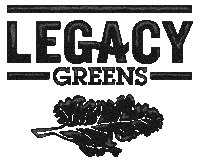Inflation, Groceries, and What to Do

Are you seeing media reports everywhere about inflation and grocery prices?!? So are we, but fear not, as a local business with shorter supply chains, Legacy Greens is feeling steady and secure!
It is true that climate change, a global pandemic, and rising wages (yay for that though) are impacting the costs of ingredients and trickling up our food systems.
This information is on our radar and we want to ensure that we keep our pricing formulas sustainable.
Here's what we're doing to keep our prices accessible:
1) We work with suppliers and farmers directly and try to cut out the middle-man wherever we can. For produce, this keeps us relatively competitive with the prices you would see in Sobeys or Zehrs.
2) We value food and are not trying to be cheap. We're trying to be fair. Fair prices have been determined through existing sustainable pricing models and will be less likely to fluctuate.
3) We experience seasonal price fluctuations regularly (ex. greenhouse tomatoes in the winter; USA cauliflower every January) and if prices go too high, we simply decide not to bring those items in. By shifting our buying practices we can offer you more seasonal produce which has better value.

Here's what you can do to make your food budget go further:
1) Eat the food you buy and try to limit food waste. Read our blog post https://legacygreens.com/blogs/news/make-the-most-of-your-produce to learn some great tips and tricks.
2) Make more of your meals at home. It doesn't have to be complicated, think bagel sandwiches, pancakes and frozen fruit, or pasta salad. Cooking at home is an excellent habit that will save you enormous amounts of money over the long term. Don't want to spend all that time cooking, look into sharing the work-load with members of your household or start a lunch club at work.
3) Look for deals and eat seasonally! We have a discounted produce section and often have discounted day-old bread. Eating seasonally will also save you money. What's in season right now: beautiful local foods like carrots, beets, apples, cabbage, onions, squash, garlic, and leeks. Storage crops like these also keep for longer so you are less likely to waste them.

Local farms and food suppliers are more important now than ever. When looking to the problems in the global supply chain, we can be thankful that we have a community of local entrepreneurs, farmers and a consumer base that understands the importance of buying local!



